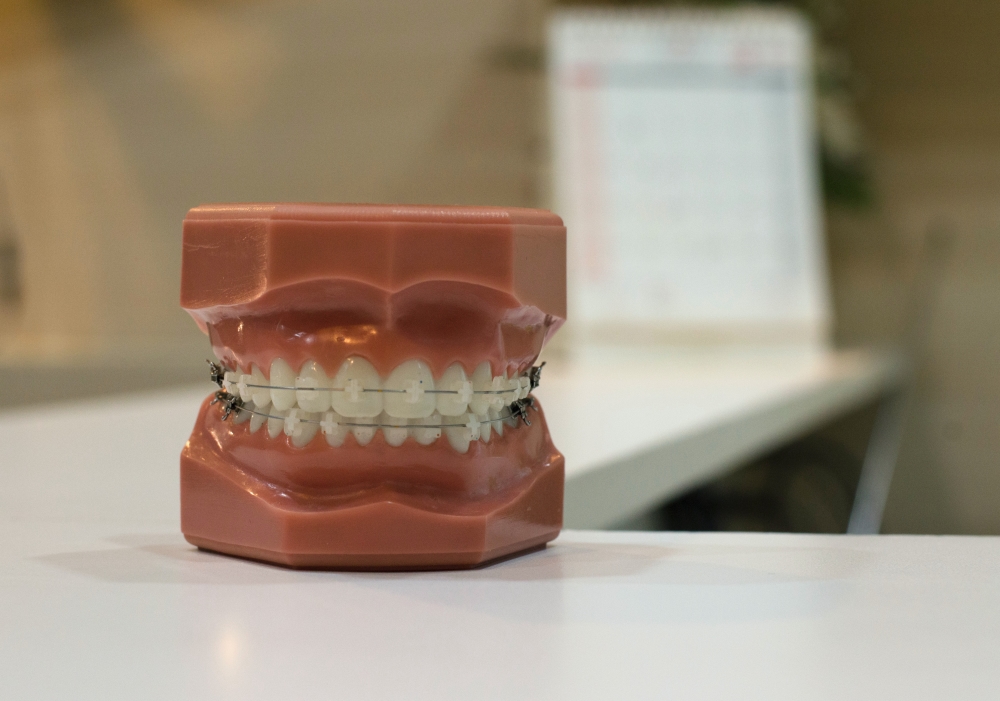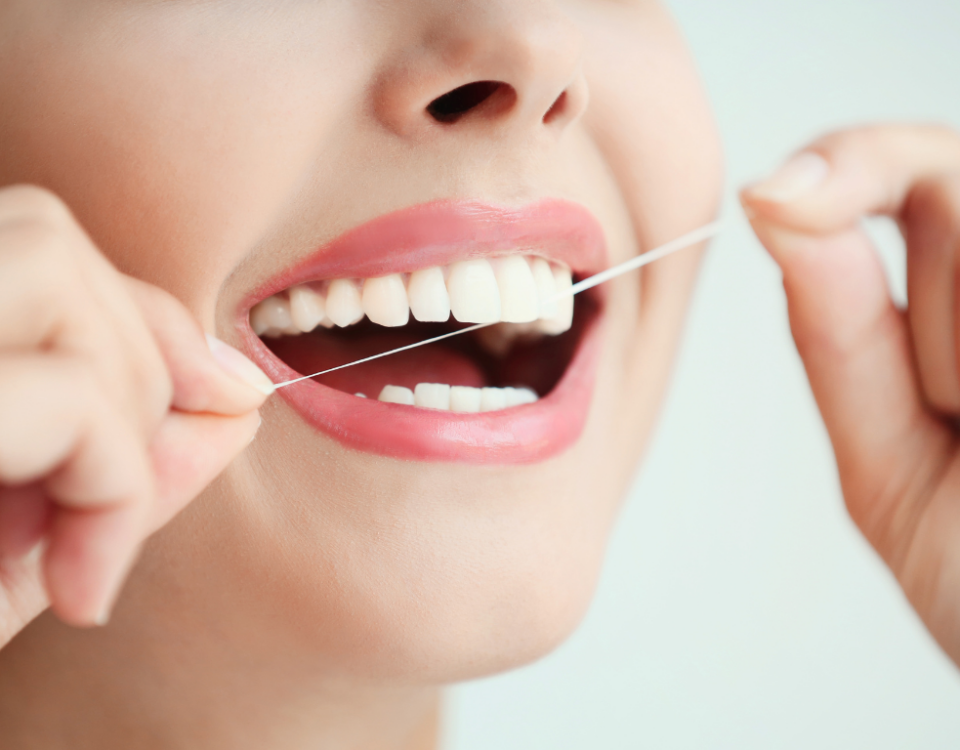
Which Is Better – Braces or Invisalign?
August 7, 2020
Should I Get Veneers?
September 6, 2020Key Takeaways:
Stress-Induced Oral Health Issues:
Stress can lead to various oral health problems, such as teeth grinding (bruxism), TMJ disorder, gum infections, cold sores, canker sores, dry mouth, and burning mouth syndrome.
Importance of Professional Dental Care:
Seeking professional dental care is crucial in managing and treating stress-related oral health issues.
Impact of Lifestyle Choices on Oral Health:
Stress can also lead to unhealthy coping mechanisms, such as increased smoking and alcohol consumption, which heighten the risk of oral cancer.
Stress impacts your health in more ways than you might think. While most people associate headaches with stress, you can also experience mouth problems caused by stress. With the help of a professional dentist, you can avoid long-term damage to your teeth and smile.
Top 8 Mouth Problems Caused by Stress
1. Teeth Grinding (Bruxism)
The stress you have during the day can impact your sleep at night. Teeth grinding, also known as bruxism, happens when you clench or grind your teeth together in your sleep. While this condition more commonly occurs at night, it can also affect you during the day when you unconsciously clench your teeth together during intense concentration or stress.
Bruxism, like stress, happens to most adults at some point in their lives. Because not everyone gets treatment for this condition, estimates range from 50% to 95% of adults experiencing teeth grinding, making this one of the most common mouth problems caused by stress.
Unless you change your lifestyle to reduce stress and prevent tooth damage, bruxism could lead to severe headaches upon waking, loose teeth, damaged tooth surfaces, jaw pain, tooth sensitivity, and TMJ disorder. A dentist can help by fitting you with a customized nightguard that you wear to protect your teeth surfaces from grinding. You may also need restorative dentistry to repair any damage done to your teeth from grinding.
2. TMJ Disorder (TMD)
TMJ stands for temporomandibular joint, and TMJ disorder (TMD) refers to a condition when the lower jaw shows a series of painful symptoms from muscle weakness, overuse, or damage. Signs of TMD can happen from stress or long-term bruxism.
Symptoms commonly associated with TMD include a clicking or popping sound when you open your jaw, pain in the jaw, difficulty chewing due to jaw pain, aching face muscles, and facial swelling.
Treatments for TMD start with a dental visit for an assessment of the damage to your teeth. A night guard can keep you from clenching your jaw and worsening the condition. You may also need other treatments to relieve pain and correct the condition.
3. Gum Infections
You may neglect oral hygiene during stressful times, which can raise the chances of gum disease. However, the stress of any type can increase your susceptibility to infections, including gum infections. The body’s ability to fight infections reduces due to its reaction to the stress in your life. Coupled with any type of oral health neglect, and you could have gum inflammation, tooth decay, bad breath, and bleeding.
Make an appointment with your dentist if you have any of these signs of gum disease or infection. With proper oral care, you can get treatment for these mouth problems caused by stress.
4. Cold Sores
Cold sores, also known as fever blisters, happen from an infection of the herpes simplex virus. These small eruptions often occur on the lips or around the mouth. Stress can trigger an outbreak of these highly contagious fever blisters. You can usually get over-the-counter remedies for these.
5. Canker Sores
Similar to cold sores are canker sores because they, too, can happen when you are under stress. You may have a minor mouth trauma before developing one. These appear inside the mouth as small circles with gray centers and whitish borders. They can feel pain when you eat or drink. Saltwater rinses may help ease the pain. Usually, they will heal on their own within a week, but if you have canker sores that don’t go away, make an appointment with your dentist to see if you have another condition causing the mouth sores.
6. Dry Mouth
Another of the mouth problems caused by stress is dry mouth. You may have experienced this problem temporarily during times of anxiety. But some people have this condition on a chronic basis, which can impact eating and speaking.
Dry mouth has several causes, including medications and health conditions. If left without treatment, this problem can lead to complications such as an inability to eat, difficulty speaking, mouth sores, nausea, tooth decay, gum disease, and fungal infections.
Since saliva protects the teeth and gums from damage, the dry mouth requires you to take extra care of your teeth and gums. Make regular dental appointments a priority. Your dentist can help you to find a solution to dry mouth and treat the damage done from this problem.
7. Burning Mouth Syndrome
Burning mouth syndrome is one of the more mysterious mouth problems caused by stress. This is a description of various conditions inside the mouth. Symptoms include burning feeling in the mouth or tongue, a metallic taste, dry mouth, an inability to taste properly, or tingling.
Doctors don’t fully understand what causes burning mouth syndrome, but it may happen from stress. Some cases of burning mouth syndrome may also occur secondary to nutritional deficiencies, allergies, dry mouth, infections, or medications.
Your dentist will work with you to help find a solution for your burning mouth syndrome. If brushing and flossing cause discomfort, ask your dentist about more comfortable alternatives, so you don’t neglect your oral health.
8. Oral Cancer from Increased Cigarette and Alcohol Use
Stress may cause some people to drink or smoke more than usual. While these alone are not mouth problems caused by stress, they can increase the chances of developing oral cancer. Try to stop smoking and drinking or find alternative ways to cope during times of stress. Also, schedule regular dental checkups to let your dentist look for signs of developing oral cancer. When caught in its early stages, you have a better chance of overcoming oral cancer.
See a Dentist for Concerns About Mouth Problems Caused by Stress
Don’t put off visiting the dentist if you experience stress in your life. By getting regular dental cleanings and exams, you can stop many mouth problems caused by stress before causing permanent damage. If you’re in Charlotte, NC, contact us at Langley Dental Care for cosmetic and family dentistry to get you a beautiful, healthy smile.



